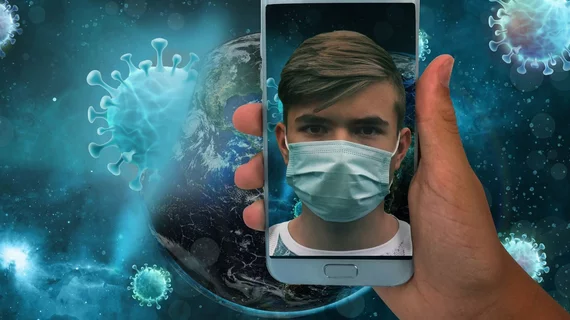AI all over COVID-countering advances backed by the NIH
Along with new or improved algorithmic applications for chest imaging, watch for word of an AI-powered breathalyzer and other diagnostic techno-weapons aimed at COVID. What they’ll all have in common is full-throated NIH support.
The advance notice comes from speakers at a recent “Artificial Intelligence: New Horizons in Medicine” conference. Event coverage is posted in an Aug. 17 news item from Government CIO Media & Research.
The breathalyzer idea was floated by speaker Behrouz Shabestari, PhD, national technology centers program director with the NIH’s National Institute of Biomedical Imaging and Bioengineering (NIBIB).
“I do not see any application that does not have the word AI in it,” Shabestari said at the conference, referring to COVID-related projects in development with the newly formed, NIBIB-funded Medical Imaging and Data Resource Center (MIDRC).
Shabestari added that the pandemic “has become a testbed for AI.”
Reporter Faith Ryan also quotes Alastair Thomson, the CIO of the National Heart, Lung and Blood Institute.
COVID-19 “is not your average respiratory disease—this is going to have long-term effects on the heart, the kidneys, the brain,” Thomson told attendees. “All of these are going to be affected for a long time to come.”
The works-in-progress AI techniques are in play “across the board in every area we’re looking at—whether it’s genomics, imaging or whatever else,” Thomson added. “The applicability of models developed from one modality to another has been startling, and it’s led to some tremendous progress.”

